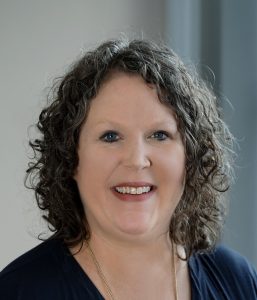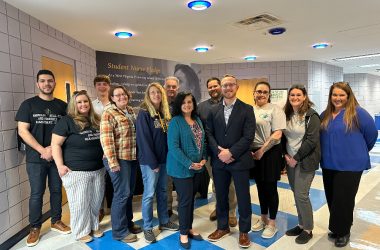Student mental well-being, online instruction, enrollment, finances among the challenges
— — —
By Lexi Browning
West Virginia Press Association
CHARLESTON, W.Va. — As students return to their respective higher education institutions across West Virginia during the ongoing coronavirus pandemic, they’re adjusting to a new learning curve — one filled with new technologies and methods of communication, smaller class sizes and more safety protocols.
This semester, it’s not just the students getting acclimated. In colleges and universities around the Mountain State, staff and faculty are adopting new practices as they work to prevent the spread of COVID-19.
It’s a challenging time for the students and also the institutions
Though there have been some dips in enrollment at the institutions, the declines were not as steep as they had initially expected, said Dr. Sarah Tucker, chancellor of the West Virginia Higher Education Policy Commission.
“At baccalaureate institutions, there were slight drops in enrollment, but not the significant drops we were worried about,” Tucker said. “Our community colleges are all over the place — some experienced significant growth and others experienced pretty dramatic declines. We’re still trying to hammer out what those numbers look like.”

Decline in revenue
Financially, Tucker said the institutions have lost revenues from auxiliary sources, such as athletic events and special university events. Even smaller fees, such as parking, can make a difference if fewer students are purchasing, she noted.
“All sorts of things like that add up, and end up impacting the school’s financial situation,” Tucker said. “There are a lot of moving targets to keep our eye on.”
Citing the financial impacts of the coronavirus on the university, Marshall University President Jerome Gilbert recently announced a second round of temporary salary cuts for employees making more than $50,000. Previously, in July, the university announced temporary salary cuts for employees making more than $100,000.
In a press release from the university in September, the president attributed the second temporary wave of cuts to lost revenue.
Gilbert said the cost-cutting measure is needed to balance the university’s budget in the face of enrollment declines for the fall semester the release read. Gilbert emphasized the reductions are intended to last no more than one year and that salaries may be restored earlier if revenue improves. He added that university officials had been waiting until they had solid fall tuition revenue estimates to determine if the second phase of salary cuts would be needed.
As the coronavirus pandemic began to spread in mid-March, colleges and universities turned to remote learning to help prevent the spread of coronavirus. In switching to online forums and remote learning environments, costs began to accumulate, Tucker said.
“We’ve had a lot of costs associated with technology, costs for getting our students and employees the types of equipment that they need to be successful from their homes,” Tucker said. “That has been a significant cost to the institutions.”
In late July, Governor Jim Justice allocated $2.5 million in federal Coronavirus Aide, Relief, and Economic Security Act funding to testing all college and university students and staff for the novel coronavirus before the start of the fall semester.
“We’ve had a lot of costs associated with testing and with surveillance testing, and, thankfully, the governor stepped in and paid for testing for the institutions at the beginning of the fall semester and is now doing the same for surveillance testing,” Tucker said. “That takes a huge burden off the institutions.”
Tucker said when conversations about surveillance testing began, West Virginia University was paying upward of $175,000 a week, and Marshall University was paying $45,000 per week.
“Initially everybody was tested, and we have been working very closely with the West Virginia Department of Health and Human Resources and the colleges to ramp up testing that’s happening in the colleges,” Tucker said. “It’s our goal to have 10 percent of our campus population tested every week.”
All institutions also have a designated location for students who need to isolate, Tucker added. During a press conference on September 16, Governor Justice announced that college students with the virus isolated in congregate settings would be counted as a single case.
“We have not had a whole lot of positives in the state of West Virginia among our student population,” Tucker said. “I would say most of our colleges have no cases, and we have less than one percent testing positive in our student bodies right now, so while they have the spaces, they might not necessarily need them right now.”
Mental health matters
In a recent meeting with student, faculty and staff representatives, Tucker said the general consensus among university leaders and representatives has been optimistic so far.
A representative for students, Tucker said, voiced concern about external stressors related to COVID-19, such as students who, if exposed to the virus and forced to quarantine for two weeks, may lose a paycheck they relied on. Some students, the representative continued, may be taking on additional babysitting responsibilities with younger siblings in virtual learning.
“There are a lot of different scenarios happening with students right now that don’t have anything to do with the college, per se, but that has to do with the fact that this is a difficult time in everyone’s lives. That’s a concern for us, and it’s something we’ve been watching very closely to provide resources to the college so they can help their students the best they can.”
Last month, the WV HEPC issued nine grants for institutions to invest in mental health-oriented initiatives, counseling and research. Recipients included BridgeValley Community and Technical College, Concord University, Marshall University, New River Community and Technical College, Pierpont Community and Technical College, West Virginia School of Osteopathic Medicine, West Virginia State University and West Virginia University.
Prior to the pandemic, a behavioral health specialist was brought on board at the WV HEPC to help institutions “coordinate and ensure ” best practices for counseling faculty, Tucker said.
“[Before COVID-19], we knew even then that our counseling services needed help,” Tucker said. “We were listening to them, and they told us they needed help. As the pandemic continued and we started getting more and more feedback from our colleges, it was clear that they had special initiatives that needed to be funded and deserved to be funded, but the college themselves don’t have the same types of resources that they typically have because of the expenses from COVID.”
Mental health support was one of the key reasons the commission pushed to open campuses, Tucker said. The WV HEPC also assisted some colleges and universities in getting telemedicine counseling services during the pandemic.
“This is a really isolating time for all of us, and we’re all in our rooms, working from the computer, talking to people on the phone or on Zoom meetings. There’s very little in-person interaction,” Tucker said. “It wears on people, and we’ve had a big uptick in the usage of our counseling staff across the state because students are struggling with all of the stresses that come along with this pandemic”.
Can COVID-19 change the future of higher education long-term?
With advancements in technology and remote capabilities, Tucker said she anticipates that some of the technologies will stick around long-term, specifically with online course offerings.
“I also think that one of the things the pandemic has shown us is just how vitally important in-person interaction is in classrooms,” she said. “Everyone’s doing their best to get through this, and they’re doing a really good job at it.”
Though the connections forged through in-person learning are irreplaceable, Tucker said the success of remote working may change the way institutions move forward.
“I think we’re being incredibly productive right now as far as the amount of work that gets pushed out,” Tucker said. “I think colleges will be less likely to build brick and mortar buildings, and they’ll think about it a little harder.”
Tucker said the teamwork and coordination between institutions, the Governor’s Office, the WV DHHR, State Health Officer Ayne Amjad, MD, State Superintendent Clay Burch and Coronavirus Czar Clay Marsh, MD, has assisted in finding the best solutions for each institution.
“I don’t know that we’ve ever worked as a team collaboratively, and this pandemic has required it,” she said. “And people have really stepped up and have been willing to talk about things that, perhaps, before they wouldn’t have talked about because they considered each other competitors. That’s not happening anymore, and that has been a very welcome and enjoyable change of pace.”
With more knowledge about the coronavirus and its transmission, institutions have been able to prepare and plan with safety at the forefront, she said, which is ultimately the priority.
“Now that we have a better understanding of how the disease is transmitted, we’ve been able to make sure that our classrooms and buildings are safe. That has been an easier proposition for us,” Tucker said. “I would not say easy, but easier than it was in the spring.”
Though the learning environment may look different this year, Tucker said colleges and universities throughout the state are working harder than ever to ensure students have a safe, productive learning environment.
“I think we all have learned that we have to be flexible and adaptable and figure out how to work in this environment,” Tucker said. “Our faculty members have been amazing during this. They have worked so hard and tried so hard to get their courses online… As we keep going, it will keep getting better. Ultimately, a student has to decide what’s in their best interest. Some students are making the decision to stop out for a while, and I can understand that too.”




